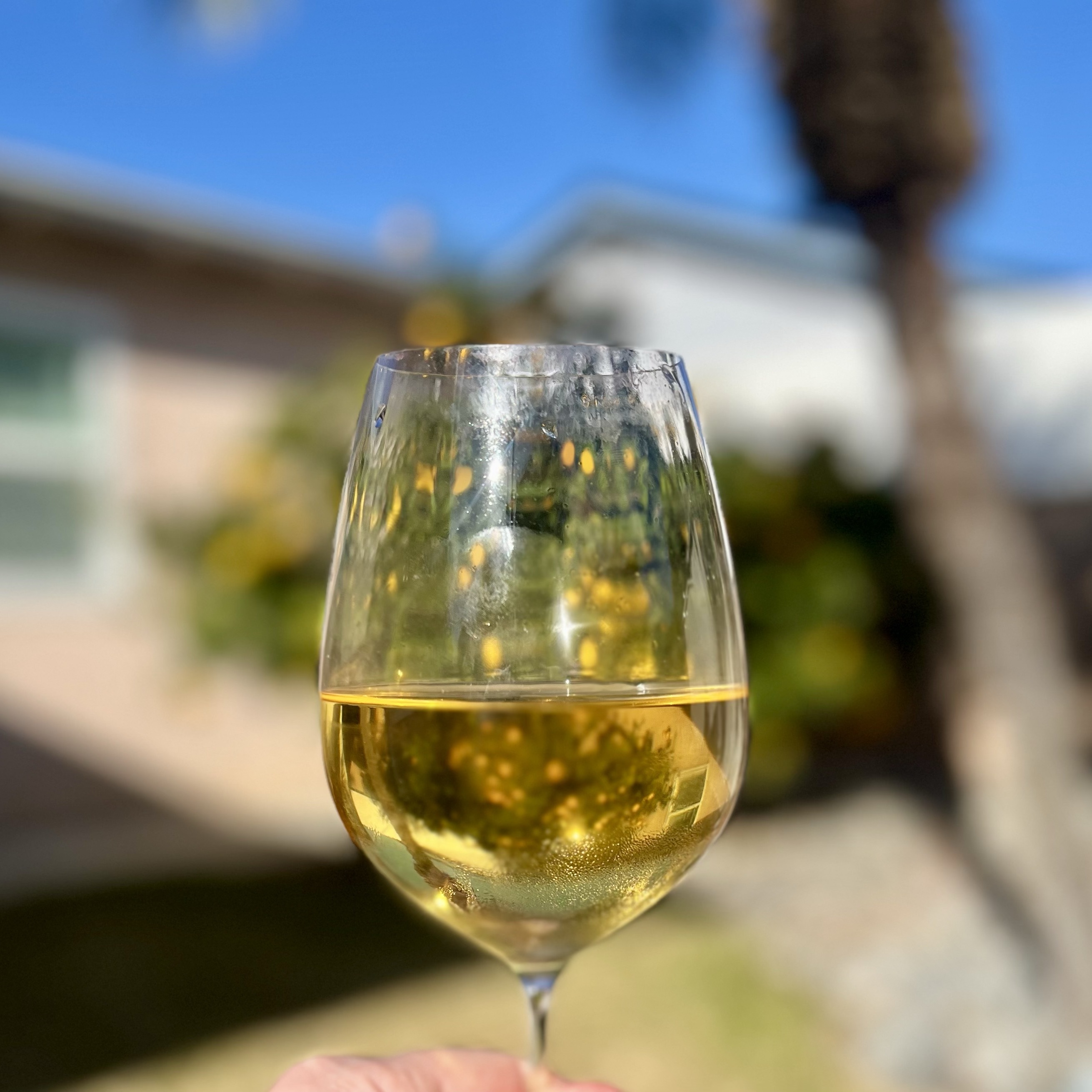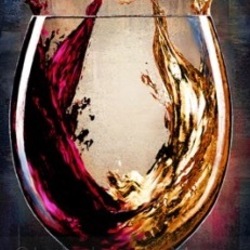Château Capbern Gasqueton
Château Calon-Ségur
Saint-Estèphe Red Bordeaux Blend 1996
On the nose, a touch of barnyard. Sweet & sour dark cherries, blackberries, black raspberries, baked strawberries and hues of blue fruits. Dry crushed rocks, dry stones, rich black turned, soft leather, cedar, underbrush, tobacco, light vanilla & clove, medium spice, limestone, fresh & withering dark red floral bouquet.
The body is just full. The tannins are soft, rounded, chewy & sticky and still have some teeth. The wine elegantly guides smooth over the palate...very little that pushes back. It’s still youthful but not as youthful as my expectation. Sweet & sour dark cherries, blackberries, black raspberries, baked strawberries and hues of blue fruits. Dry crushed rocks, dry stones, rich black turned, soft leather, cedar, underbrush, tobacco, some dry herbal notes, sweet tarry notes, light vanilla & clove, medium spice, powdery limestone, loamy clay & top soil, graphite, dark spice with lifting heat, fresh & withering dark red floral bouquet and haunting violets. The acidity is near perfect. The structure, tension, length are in a very place but, will still improve for another 15+ years. The long, finish is ripe, round, balanced and lasts minutes.
Photos of, the Chateau, Technical Director Vincent Millet, beautiful stainless steel tank room and their new barrel room.
Producer notes & history...historic records show that Calon Segur was in existence as far back as 1147, when it was owned by Monseigneur de Calon. He was an important Bishop in the community. This makes Chateau Calon Segur one of the very oldest properties in Saint Estephe. Eventually, the property came to be owned by Nicolas Alexandre de Segur. Hence where part of the name of the Chateau comes.
After passing through generations, the estate became the property of the famous Marquis de Segur. de Segur is an important figure in Bordeaux history, not only for his ownership of numerous top Bordeaux estates in that day but, he also owned Lafite and Latour. de Segur is credited with uttering the words that spawned the idea behind the heart shaped logo of Calon Segur. The story is that de Segur is quoted as saying: “I make my wine at Lafite and Latour, but my heart is in Calon.” This famous saying lives on the label of Chateau Calon Segur, where the drawing of a heart is prominently featured on the bottle.
Chateau Calon Segur was one of the original three Bordeaux vineyards in Saint Estephe. In 1825 Chateau Montrose was a forest without a single vine belonging to the massive Calon Segur estate. In fact, Chateau Phelan Segur was also once part of the vast Segur estate. The holdings of the Segur family were so large, they included what would later became Chateau Lafite Rothschild, Chateau Latour and Chateau Mouton Rothschild!
The more modern era by European standards began in 1894 when its Left Bank vineyards were purchased by Georges Gasqueton and Charles Hanappier. Hanappier was a large negociant at the time. The Gasqueton family managed the estate until 2012. Madame Gasqueton ran the estate until she passed away at the age of 87 in late September, 2011.
In July of 2012, Chateau Calon Segur was sold for 170 million Euros or 215 million US dollars. The buyer was a French Insurance Company, Suravenir Insurance. Jean-Pierre Moueix, the owner of Petrus and the massive negociant company Duclot also took a minority stake in Chateau Calon Segur.
Since taking over Calon Segur, they started renovating the property with the focus on the wine making facilities. They followed a trend to vinify on a parcel by parcel basis. The estate replaced their older vats with new stainless steel tanks that vary in size and number to match the size of the various vineyard parcels.
The new tanks accompany a completely new vat room as well with everything moving completely by gravity. The new tasting room was remodeled as well. The renovations were completed in 2016.
Their cellars also needed work. Immediately after closing, the new owners began an extensive replanting of the Calon Segur vineyard. There were a number of reasons they chose to do this. They needed to increase the level of vine density and add more Cabernet Sauvignon.
The extensive renovation of Chateau Calon Segur cost somewhere north of 20 Million Euros. Other changes, the new owners took full control and brought in Vincent Millet as the Technical Director.
The 55 hectares of Calon Segur are located just north of the small town of St. Estephe and are planted to 53% Cabernet Sauvignon, 38% Merlot, 7% Cabernet Franc and 2% Petit Verdot.
Chateau Calon Segur is one of the few walled in vineyards in the Left Bank. Calon Segur is also known as being the northern most Classified Growth in Medoc.
The terroir of Calon Segur is a blend of gravel, rocks, clay, sand and limestone soils on the surface with gravel that can be as deep as 5 meters. Underneath, you find marl, clay and limestone.
On average, the vines are 25 years of age. However, they have older vines that range in age from 45-60 years of age.
The vineyard of Chateau Calon Segur remains almost exactly the same as it did at the time of the 1855 Classification.
Since the remodel was completed, fermentation takes place in 70 conical shaped, stainless steel tanks that range in size from 25 hectoliters to 120 hectoliters. Vintages are now aged in 90% to 100% new, French oak barrels for up to 20 months.
Production of Chateau Calon Segur is around 20,000 cases per year. They also make a second wine, which was originally named Marquis de Calon. Now, the second wine is sold under the name of Le Marquis de Calon Segur.
There is also a third wine, which is sold under two names, La Chapelle de Calon, and St. Estephe de Calon Segur, which is produced from vines that mostly come from a specific plot with more limestone. — 8 years ago

Château Grand-Puy-Lacoste
Pauillac Red Bordeaux Blend 2010
Château Ormes de Pez
Saint-Estèphe Red Bordeaux Blend 2019
2019 vintage. An estate owned by the Cazes family (Lynch Bages, Haut Batailley). A blend of Merlot (50%), Cabernet Sauvignon (40%), Cabernet Franc (7%) and Petit Verdot (3%). Less flashy compared to the Capbern 2019 tasted yesterday, give it some time to open up. Even with the high Merlot percentage, it has more of a dark Cabernet Sauvignon personality with black fruit and a serious, slightly severe tannic backbone. Abv. 14,5 %. — 4 years ago





Michael Hone
Excellent vintage. Aged well. — a month ago